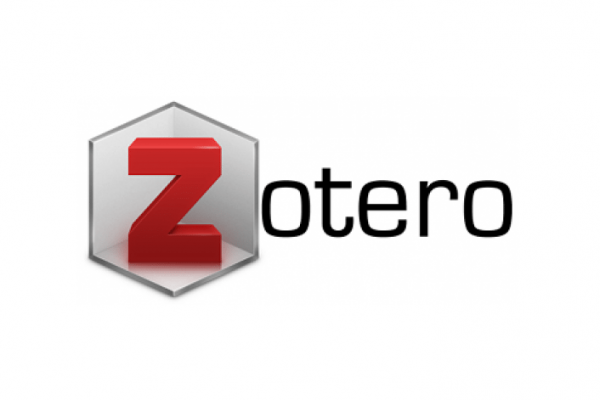In today’s digital age, writing has become an essential skill for various purposes, including research papers, literature reviews, assignments, and dissertations. However, the process of writing can be challenging and time-consuming, requiring extensive research, critical thinking, and effective communication skills. To alleviate some of these difficulties, artificial intelligence (AI) tools have emerged as valuable resources for writers.

In this comprehensive review, we will explore the best AI tools available for different types of writing tasks. Whether you are a student, researcher, or professional writer, these AI tools can significantly enhance your writing experience and help you achieve better results. From research papers to dissertations, we will cover the top AI tools that can assist you in each specific writing task. So, let’s dive in and discover the power of AI in the world of writing!
One of the top AI tools for writing research papers, thesis, dissertations, literature reviews and others related to academic writing is called Tenkeyword. This tool is designed to help writers by suggesting important keywords that can improve their content. Upon selecting the keywords, the writers are able to write articles based on the chosen keywords. Hence, Tenkeyword is especially useful for those who need to focus on specific topics or terms, making writing tasks simpler and more efficient. Tenkeyword is a great help for anyone looking to enhance their writing with relevant keywords effortlessly.
Manuscript Writer can generate a research paper draft within 1 to 24 hours that includes the introduction, materials and methods, results, and references of the manuscript. After the draft is created, you need to review it and add the discussion and conclusion sections according to your results and insights. However, please remember that this draft is just a starting point and should not be considered ready for submission as is.
Furthermore, Hemingway Editor is a helpful AI tool for improving the readability of your assignments. It highlights complex sentences, passive voice, and excessive adverbs, helping you to write in a clear and concise manner by suggesting a much more relevant words.
The next best AI Tools for writing research papers is Grammarly. Grammarly is an AI-powered writing assistant that helps users improve their writing by providing suggestions for grammar, spelling, punctuation, and style. It also provides suggestions for sentence structure and word choice, ensuring that your assignments are clear and concise. Besides that, Grammarly also offers a plagiarism checker to ensure that the content is original and properly cited.

Another useful AI tool to enhance academic writing is Zotero. Zotero is a free, open-source reference management software that helps researchers collect, organize, and cite their sources. It allows users to easily save references from websites, databases, and library catalogs, and automatically generates citations and bibliographies in various citation styles.
One more AI tool worth mentioning is EndNote. EndNote is a reference management software that helps researchers collect, organize, and cite sources. It offers a ‘Find Full Text’ feature that automatically searches for full-text PDFs of articles and attaches them to the references. EndNote also provides a ‘Smart Groups’ feature that allows users to create groups based on specific criteria, making it easier to organize and navigate through large collections of references.
Another useful AI tool for writing literature reviews is Mendeley. Mendeley is a reference manager and academic social network that allows researchers to organize their references, collaborate with others, and discover new research. It offers a feature called ‘Literature Search’ that enables users to search for relevant articles and papers based on keywords or specific criteria. Mendeley also provides a ‘Highlight and Annotate’ feature that allows users to highlight important sections of a paper and add notes for future reference.


One popular AI tool for writing literature reviews is Citavi. Citavi is a comprehensive reference management software that helps researchers collect, organize, and analyze sources. It allows users to import references from various databases and automatically generates citations and bibliographies in different citation styles. Citavi also offers a feature called ‘Knowledge Organizer’ that helps users structure their literature review by creating categories and subcategories for different themes or topics.
Another useful AI tool for writing assignments is Turnitin. Turnitin is a plagiarism detection tool that checks your assignments for any instances of plagiarism. It compares your work to a vast database of academic papers, books, and websites to ensure that your writing is original and properly cited.

Evernote is a note-taking app that allows you to organize your research and ideas. It also has a feature called ‘Web Clipper’ that lets you save articles, web pages, and other online resources for later reference.
Writing a thesis, dissertations, literature reviews and others related to academic writing is a challenging and time-consuming task that requires extensive research, critical thinking, and effective writing skills. Fortunately, there are AI tools available that can assist students in the process of completing their academic writing with ease and more efficient. These tools utilize advanced algorithms and natural language processing to provide valuable assistance and improve the overall quality of the dissertation.
One of the key challenges in writing researches and academic related articles is organizing and structuring the content. AI tools can help in this aspect by providing templates and guidelines for different sections of the dissertation, such as the introduction, literature review, methodology, results, and conclusion. These tools can suggest the appropriate headings and subheadings, ensuring that the dissertation follows a logical flow and structure. AI tools can also help generating summaries needed in your research writing. Utilizing AI tools greatly help in saving more time to complete the academic research writing.
Another important aspect of writing a thesis is conducting thorough research to produce a high quality research papers. AI tools can assist in this process by automatically searching for scholarly articles, books, and other credible sources related to the dissertation topic.
Besides that, AI tools can assists in citing relevant sources. These tools can also generate citations and bibliographies in various citation styles, such as APA, or MLA, saving students valuable time and effort.
Grammar errors are mandatory mistakes in research papers writing. Hence, AI tools can help in improving the writing style and grammar of the thesis or dissertations by automatically analyzing the text to detect grammatical errors, spelling mistakes, and punctuation errors. The AI tools then proceeds to provide relevant suggestions for corrections. They can also offer insights on sentence structure, word choice, and overall readability, helping students enhance the clarity and coherence of their writing.
Furthermore, AI tools can assist in the editing and proofreading process of the research papers to ensure the quality and originality of the research papers. They can identify repetitive phrases, redundant sentences, and inconsistencies in the content, allowing students to make necessary revisions and improvements. These tools can also provide feedback on the overall quality and coherence of the dissertation, helping students refine their arguments and strengthen their academic writing.
Next, when it comes to writing assignments, AI tools can be incredibly helpful in streamlining the process and improving the quality of your work. These tools can assist you in various aspects of assignment writing, from generating ideas to proofreading and editing.
However, it is important to note that while AI tools can be valuable aids in the dissertation writing process, they should not replace the critical thinking and analytical skills of the student. It is essential for students and researchers to actively engage with the content and make informed decisions based on their own research and understanding. They should should still carefully review and edit their papers to ensure accuracy and coherence. AI tools should be used as complementary tools to enhance the writing process, rather than relying solely on them.
There may be concerns regarding the ethical use of AI tools for writing. Plagiarism detection is an important consideration, as these tools can inadvertently lead to unintentional plagiarism if not used correctly. It is crucial for writers to use AI tools responsibly and to properly attribute any sources or references used.
In conclusion, AI tools have offered numerous advantages to greatly enhance the writing process, whether you are writing research papers, literature reviews, assignments, dissertations or other aspects of academic writings. However, it is important for writers to use these tools as aids rather than replacements for your own skills and expertise. By leveraging the power of AI in conjunction with human creativity and critical thinking, writers can produce high-quality and impactful written work.